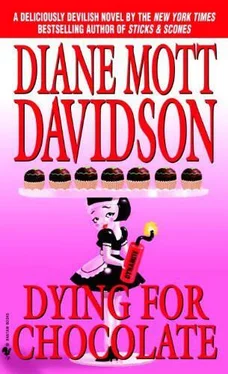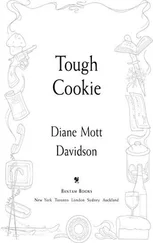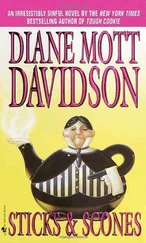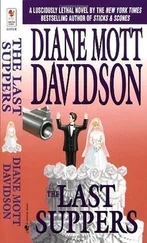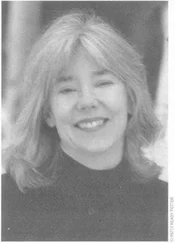I nodded and followed him, slowly, slowly. The BMW was behind me now. I was leaving Philip to strangers, foreign men in suits who would make their decree. It was unbearable.
My name again. Yes. I got into the patrol car. I tried to focus on the policeman, but Philip’s face invaded my mind. Could you describe what happened? Yes. Even then something inside said: I can describe it. What I can’t do is explain it.
Outside the car, snow fell like soft feathers, sticking in some places, melting in others. When I tried to think of what I was going to do with Adele’s T-bird, I would see the back of Philip’s car, see the black smoke belching, see his forehead and cheeks sprayed with blood.
The ambulance came. Paramedics splashed through the mud. Someone brought me a paper cup of coffee, told the cop the EMS guys had hooked the victim up to a machine to send telemetry down to a Denver hospital. A doctor had confirmed that Philip Miller was dead. Somebody from the coroner’s office was on the way.
Now a new policeman, a state patrolman, asked my name, the location of my vehicle, and if I was the one who had witnessed the accident from the other direction. When I made my answers he handed me a notebook and said to write down all I had seen. I wrote and passed it to him. While he was reading, someone rapped on the window of the patrol car. The patrolman, whose name tag said only Lowry, stepped out of the car. When he got back in he was grumbling.
My head throbbed. “May I go now?” I asked. I was seized with a surge of panic, as I had been when one of Arch’s classmates was killed in a school-bus accident two years before. I needed to see Arch, to be with him, to make sure he was okay. I said, “I need to get home. To my son.”
Where exactly was he, Lowry wanted to know, where was home? I dived into the muddle of my brain. Where was Arch now? At the school. He needed to get to the Farquhars. Yes, Lowry said, the police would phone and have Arch call home.
Home. The word brought tears, finally, as if by mentioning one loss there could be grief for all others.
Elizabeth, Elizabeth Miller, my voice was saying, someone needs to find Elizabeth, someone needs to tell her. And through my blubbering Lowry again extracted information and promised follow-up.
I took a deep breath.
Lowry said, “A friend of yours was up in this area and answered the call about the accident. He’s from the Sheriff’s Department, an investigator by the name of Tom Schulz. . . . He wanted to know if you were all right.”
“He answered the call?”
“Didn’t know you were in it till he got here. You want to see him or not?”
“Yes,” I said as tears stung my eyes again. “Please, I’d like to see Schulz.”
“Soon. About this accident. . .” said Lowry.
I looked out the window, but could not see Tom Schulz through the crowd. The snow was coming down now in a slanted rush to the mountain meadow, like millions of tiny arrows shooting to earth.
“Exactly how fast was the victim going,” Lowry wanted to know.
“It’s on there,” I said, and motioned to the pad. “About forty.” The speed limit was thirty on that road, but you could do forty on most of the straight stretches if you were careful. Which was not, of course, what Philip Miller had been.
“You see,” I said, “it was more the way he was driving.”
“And the way he was driving was . . .”
“Zigzag. As if he didn’t have control of the car.”
Lowry narrowed his eyes at me. “So what did you think?”
I shook my head and mumbled something about not knowing. “Maybe car trouble,” I said.
“Why didn’t he pull over?”
“I don’t know. That’s what I can’t figure out.”
Then we had to go back to the beginning, how I had been catering the brunch where Philip had been a guest who had arrived late.
Officer Lowry said, “Why was he late, do you know?”
“He’d just had an appointment. Medical, I think.”
“Something wrong with him?”
I shrugged.
“Did he mention his car?”
“No.”
“Did he smell like anything?”
I squinted at Lowry.
“Like alcohol, for instance,” he said.
“No.”
“Did he act at all strange?”
“Well, he . . .” I reflected and moved uncomfortably in the vinyl seat. Had he acted strange? I said, “He hadn’t had breakfast. . . he was hungry. And he wanted to see me, that’s why I was following him. We were going to have coffee over by his office.”
“At this brunch, what did he eat?”
I told him. “Do you know if they reached his sister—”
Lowry said, “The chief deputy coroner’s already on the way to the school to find the sister. This won’t take too much longer.”
I was aware of the policeman’s after-shave, of the camphor-scented blanket around my shoulders, of the squeaking noise the front seat made when Lowry turned around to face me. All these made my stomach turn over. I wanted to be where the things and people were familiar. To check on Arch.
Ahead of us, the county coroner’s van carrying Philip Miller pulled out slowly onto Highway 24. There were no blinking lights. There was no siren.
“You were telling me what he ate,” prodded Lowry. “I need to know what he drank, too.”
“I’ve told you all I saw him eat. He may have had some juice or coffee, I don’t know.”
“Did he complain of stomach or headache, fever, dizziness, chest pain, anything like that?”
“No.”
“Okay,” said Lowry. He asked about how to reach me and said someone might call later. I gave him the Farquhars’ address on Sam Snead Lane in the Meadowview area of Aspen Meadow Country Club.
I started to get out of the car, then said, “I just don’t think I’ve conveyed to you how weird this accident was. An hour ago he was fine. He drove like a maniac into town and now he’s dead. Doesn’t that seem odd to you?”
Lowry looked at me. He said, “Sometimes when something’s wrong, or when somebody’s drunk, say, they just speed up. They think, I won’t stop, I’ll just get where I’m going and then everything will be okay.”
“But it was so . . . strange.”
His jowls trembled when he shook his head. He said, “A lot of car accidents look strange, lady.”
Investigator Tom Schulz was talking with a short, big-bellied red-haired man when I walked up.
He gave me a sympathetic look and said, “You okay?”
I nodded. He made an introductory wave with one large hand.
“This is one of the coroner’s deputies.” “I just got here,” the man mumbled to Schulz. “This guy a crispy critter or what?”
I stared at the red-haired man and then lunged for him. Somebody started shrieking, “You bastard, you—”
“Whoa, Goldy, whoa,” said Schulz as he deftly grabbed me around the middle. “He didn’t mean anything.” But the red-haired man looked at Schulz, who must have given him a Get Lost look.
He mumbled, “Catch you later, Schulz,” and slunk off.
Tom Schulz gently turned me around and held me against his big body. He arranged the blanket over my head, then held me out to make sure I was all right. Tom Schulz could use his size to threaten those whom he did not trust. He could transform the broad expanses of his handsome face into a scowl, a smirk, or impassive flatness. But now his green eyes were full of worry, now his jaunty sand-colored eyebrows were drawn into an anxious line. He pulled me in for a hug. I closed my eyes and let his warmth envelop me. He said, “I thought you said you were all right.”
“Not if I have to listen to some idiot.”
“Sorry about that. You work for the coroner, you gotta keep the distance.”
We got into his car, a nondescript Chrysler you would expect a cop to drive. I looked down at my shoes. They were soaked, splotched with melting snow and mud. I turned to him and heard my voice waver. “A friend of mine just died.”
Читать дальше
